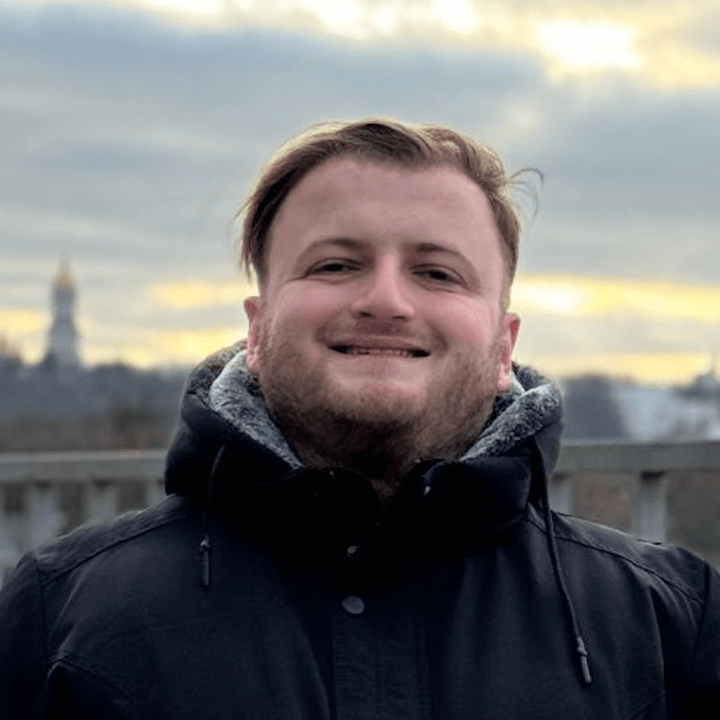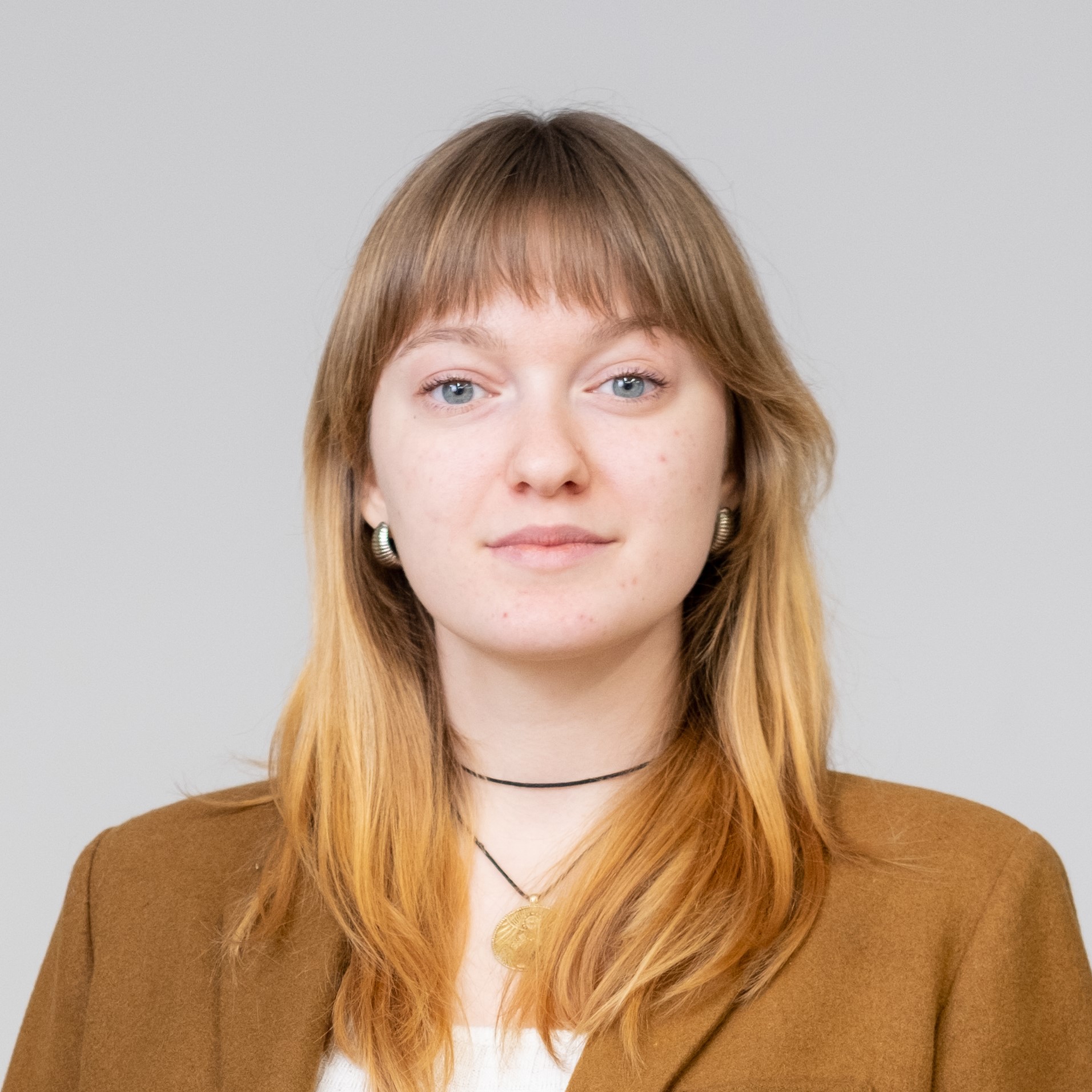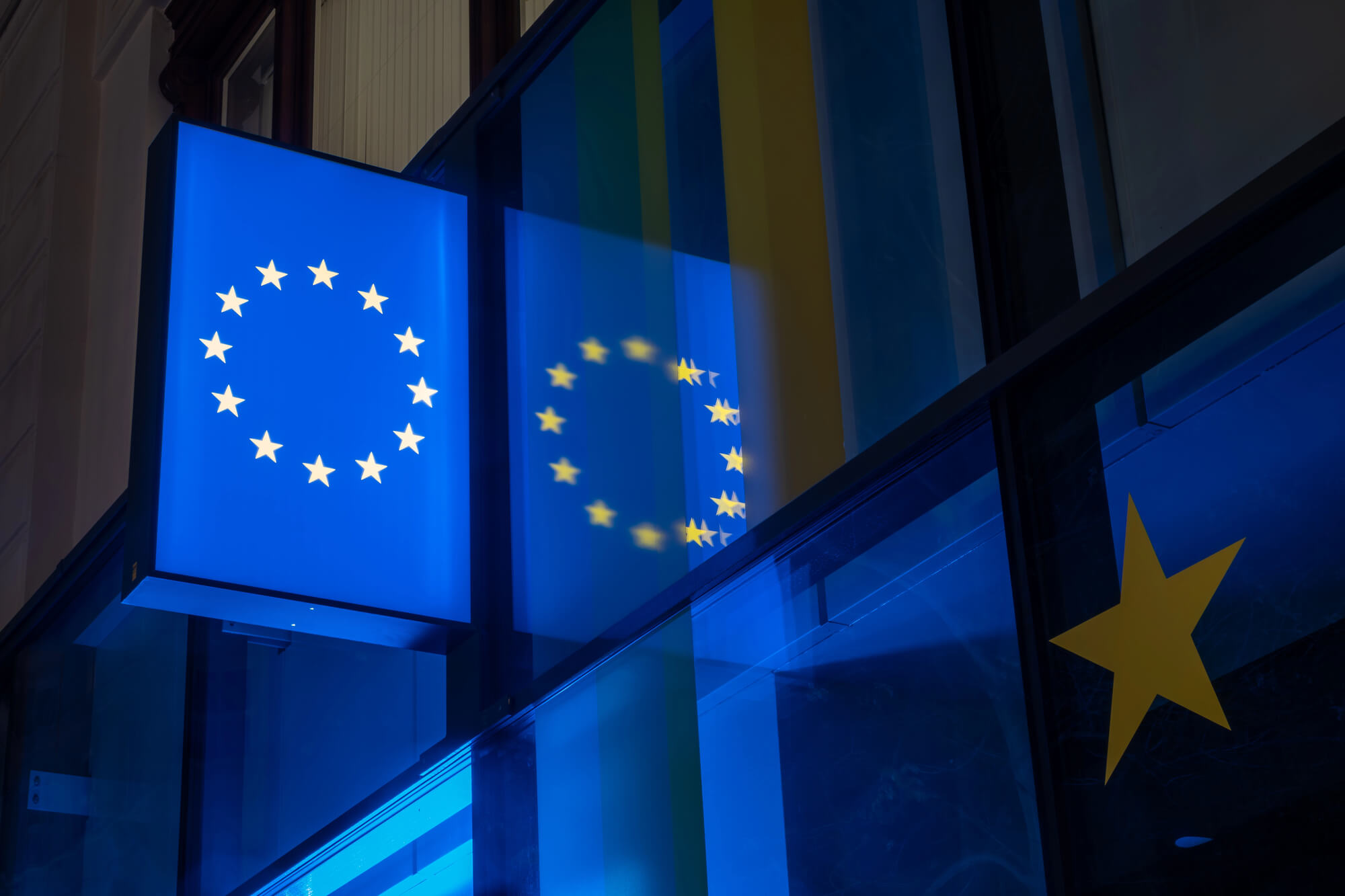A panel discussion titled “Co-Creators of change: international cooperation in times of major transformations” at the conference “EU. BUT THERE IS ONE TWIST” focused on the role of non-governmental organizations in Ukraine’s European integration. The discussion featured Inna Pidluska, Deputy Executive Director of the International Renaissance Foundation, and Olesya Zaluska, Economic Engagement Director at Mercy Corps Inc.
We thank Bohdan Maksymets, Communications Manager, and Dariia Kolodiazhna, Data Analyst at Vox Ukraine, for preparing the material based on the speeches of Inna Pidluska and Olesya Zaluska.
The event was organized by Vox Ukraine with the support of the National Endowment for Democracy (NED) on May 23, 2025. Watch the conference recording here.
The conversation began with Inna Pidluska recalling one of Ukraine’s significant achievements at the beginning of the full-scale war. “Ukraine surprised the whole world, and probably itself, by consolidating its efforts and completing the questionnaire [for the EU candidate status] within a month,” said Ms. Pidluska.
The secret of this success is the powerful work of civil society. “The contribution of civil society to Ukraine’s reforms, which were necessary to gain this opportunity, is enormous. It is truly hard to overestimate,” emphasized the representative of the international foundation.
That is why the International Renaissance Foundation launched a new program with a telling title: “Whole-of-Society Accession”.
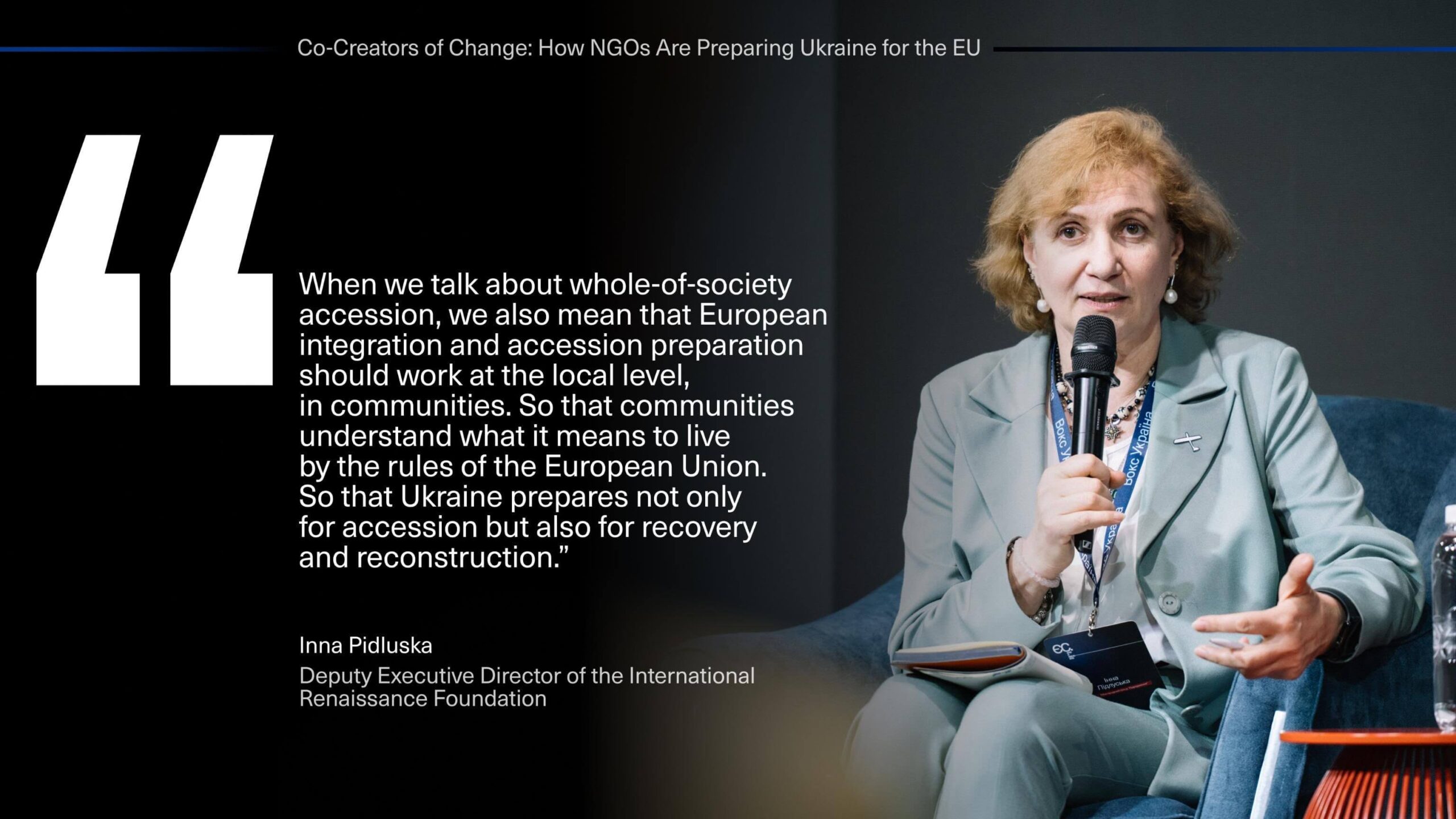
The philosophy of small changes
Olesya Zaluska from Mercy Corps picked up the thought, speaking about practical work with those who need help the most.”Mercy Corps is an international humanitarian organization operating in 40 countries. We returned to Ukraine after the start of the full-scale invasion and immediately focused our efforts on those most affected.”
The organization is implementing an agricultural program worth $65 million, supported by the Howard G. Buffett Foundation. “We provide support ranging from $3,000 to $150,000 to both very small farmers who produce for themselves and somewhat larger ones,” explained Zaluska.
The main point is not the numbers, but the philosophy: “Major transformations consist of small changes“. As an example, the Mercy Corps representative mentioned a small cosmetics brand that relocated from Bucha to Lviv and recently received certification for export to the European market.
When farmers are afraid to register
One of the main challenges is psychological resistance to change, especially in the traditionalist agricultural sector. Zaluska spoke about the State Agricultural Register being deployed with the help of European projects:
“Such registers exist in all the European countries. But in Ukraine, this register is just being introduced, and registration is voluntary for farmers. Of course, there is resistance to the new when farmers don’t understand why they need to register. There is also fear that registration could bring more problems than benefits.”
However, there are positive shifts: “When we issue grants and assistance to farmers, they update their business plans. And this is where the change in mentality and long-term thinking begins“.
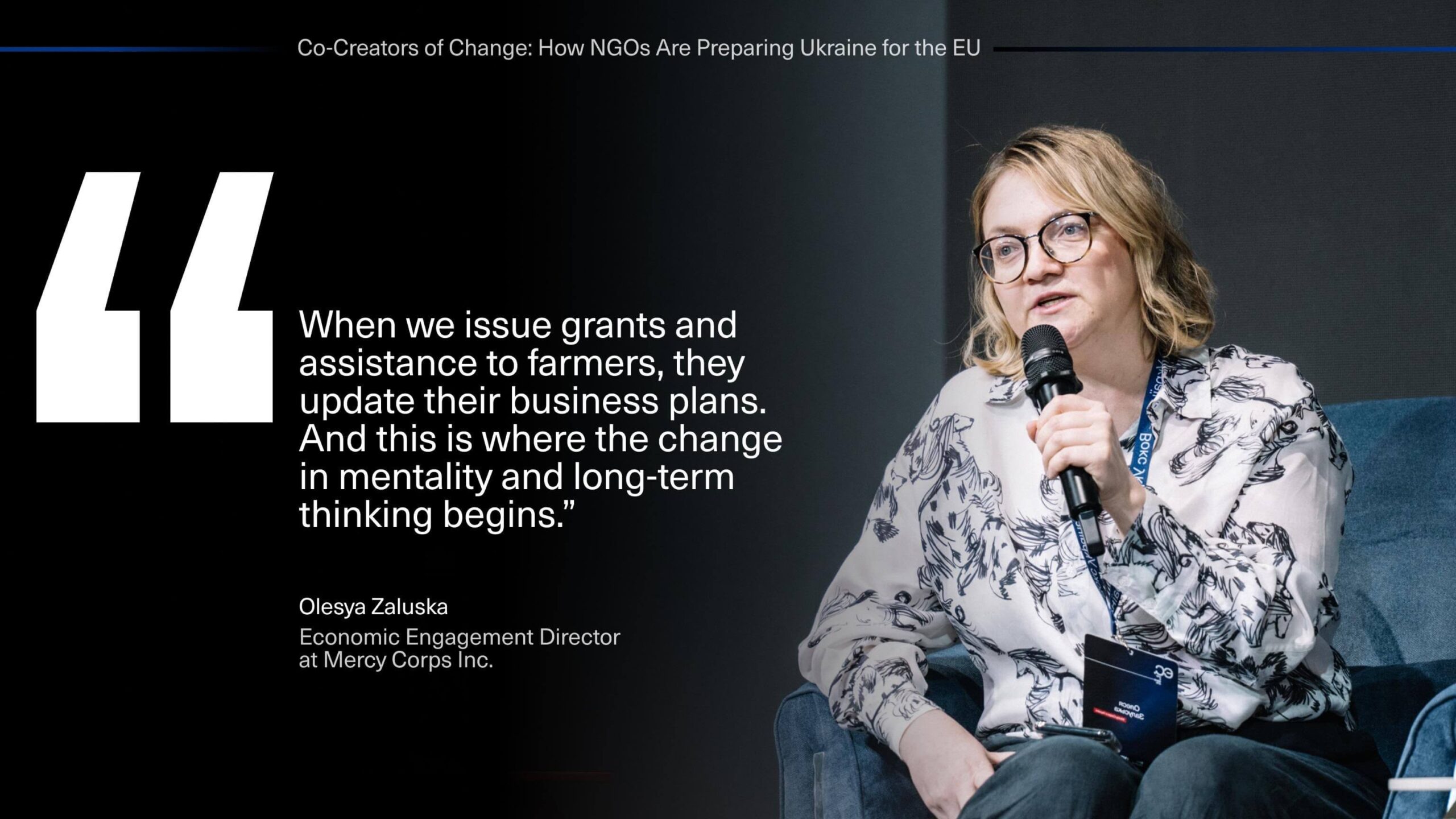
Three roadmaps to Europe
While some work on the ground, others prepare systemic changes at the national level. Inna Pidluska shared some news: “Last week [May 14], Ukraine took an extremely important step. The government of Ukraine approved and submitted to the European Commission three roadmaps in critically important areas: rule of law, public administration reform, and strengthening democratic institutions.“
Naturally, civil society was involved in this too: “When 36 working groups were formed at the government level to prepare for the screening process, all of them included representatives of civil society organizations.”
The rule of 3S1C and USAID’s exit
Pidluska formulated the principle of work in preparing for EU accession: “Everything we try to support in the direction of European integration can be described as: system, strategy, synergy, cooperation.”
But there are challenges. Zaluska frankly acknowledged a problem that is usually overlooked: “International aid is already decreasing. I think everyone felt this after the collapse of USAID. Now we need to rely more on ourselves. Organizations should move towards self-reliance.”
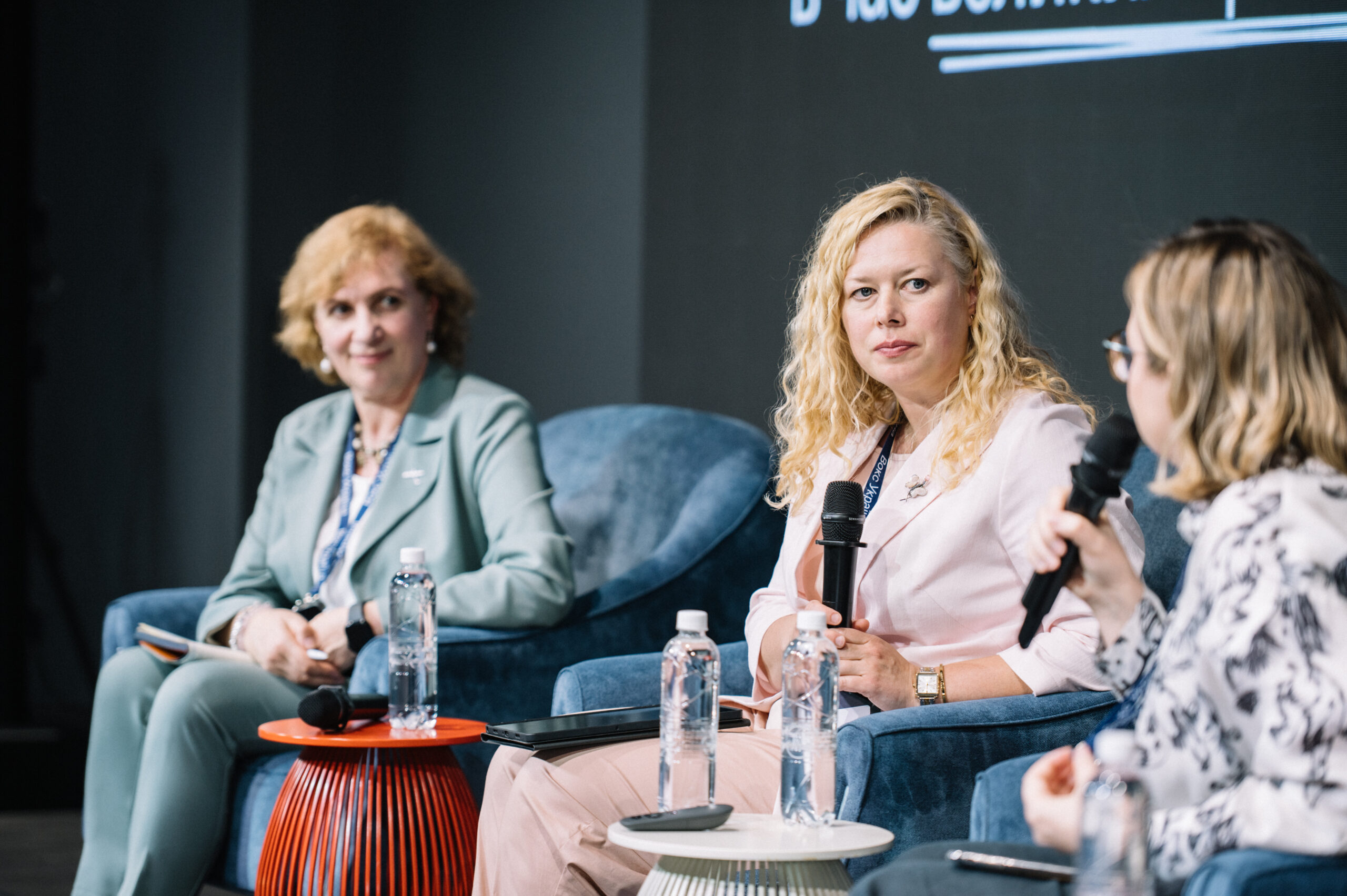
Business is somewhat passive now
In Zaluska’s opinion, today’s businesses are not very interested in how European integration will affect them. “I recommend [entrepreneurs] allocate resources and attention to the possible negative consequences. It’s worth understanding both the positive and negative outcomes of accession,” she advised.
And for those preparing for EU accession, there is a “carrot”: “Today I was at a meeting with one of the European projects. They said that approximately in 2028, EU support will come. Businesses that are not registered and not ready to receive these funds won’t be able to get them immediately.”
Thus, European integration is not an abstract political process but the daily work of thousands of people from Kyiv to the most remote villages. Success depends on the unity of the state, business, and civil society.
Photo: Kateryna Lashchykova
Attention
The authors do not work for, consult to, own shares in or receive funding from any company or organization that would benefit from this article, and have no relevant affiliations
